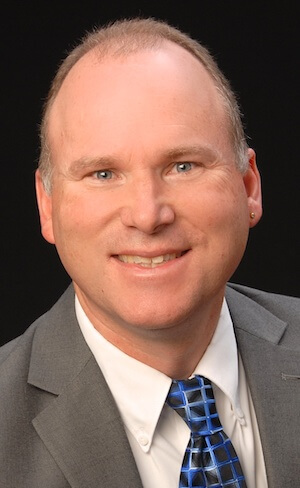Gary Petiprin, Ph.D., is the director of Bellarmine University’s Counseling Center
The coronavirus (COVID-19) and the many efforts to mitigate the outbreak have changed our normal routines in some pretty drastic ways. Many people are probably asking themselves if they are overreacting or underreacting to this threat. Even government
recommendations and actions seem to change from moment to moment. All this uncertainty and change is apt to generate anxiety for many of us.
About Anxiety

Anxiety is a normal emotion that helps humans survive. Anxiety motivates us to respond to potential threats (fight, flight or freeze). It can mobilize us to take action to avoid or reduce that threat. However, sometimes anxiety works against us.
We might act out of fear and harm other people (e.g., xenophobia) or ruminate about things that we have no control over, leading to problems with sleep, energy and concentration. Thus, it is important to harness the benefits of anxiety while not letting
it get the best of us.
Here are some tips for managing your anxiety during this time:
- Follow CDC guidelines for limiting exposure to the virus (e.g., hand-washing, avoiding large social gatherings). While the risk to a young, healthy adult is not as high as it is for others, it is important that we all minimize our exposure for
the protection of our greater society, our health care system and our most vulnerable people.
- Limit exposure to social media. Be sure to look to reliable sources for accurate information and avoid obsessing about the crisis. It is important to focus on what we can control and allow our brains to chill from worrying about things that
we can’t control.
- Maintain routine (as much as you can). The fact that many of your routines have changed is all the more reason to try to maintain routine as much as possible. Set a schedule for yourself for studying, homework, exercise, meals, relaxation and
sleep.
- Keep social connections (even when engaged in social distancing). Yes, we will all need to alter our standard ways of interacting and limit our physical contact, particularly in groups, but it is vital that we maintain our social support.
Check-in by phone or FaceTime, take a walk with a friend, or use some of your down time to email or write people.
- Take care of your body. You can greatly reduce stress and anxiety by getting regular exercise, good nutrition, hydration and rest. Don’t treat the current situation as an opportunity to party. Remember, taking care of your own well-being
is also taking care of other people’s well-being.
- Consider how you can help others. One important way to manage your anxiety is to focus on how you can help others. Consider if there are people who might need help or support during this time (e.g., an elderly relative or neighbor who might
need someone to get groceries for them).
For Additional Support
If you find that your emotional distress is impacting your ability to function or is overwhelming you, please reach out to the Counseling Center. Our counselors are available for phone consultation and crisis intervention during our regular office hours
(Monday to Friday, 8 a.m. to 5 p.m.) by calling 502-272-8480 or emailing
counselingcenter@bellarmine.edu. We can help you identify resources and strategies for managing
emotional distress. We also encourage you to use our online resources and visit our
main web page for additional resources and tips on coping
and resilience.
If you experience a crisis outside of normal business hours, you may call Public Safety at 502-272-7777, who can direct your call to our on-call counselor. You may also call the Centerstone Crisis Line at 502-589-4313, the National Suicide Prevention
Lifeline at 1-800-273-8255, or dial 911.
Take care, Knights!